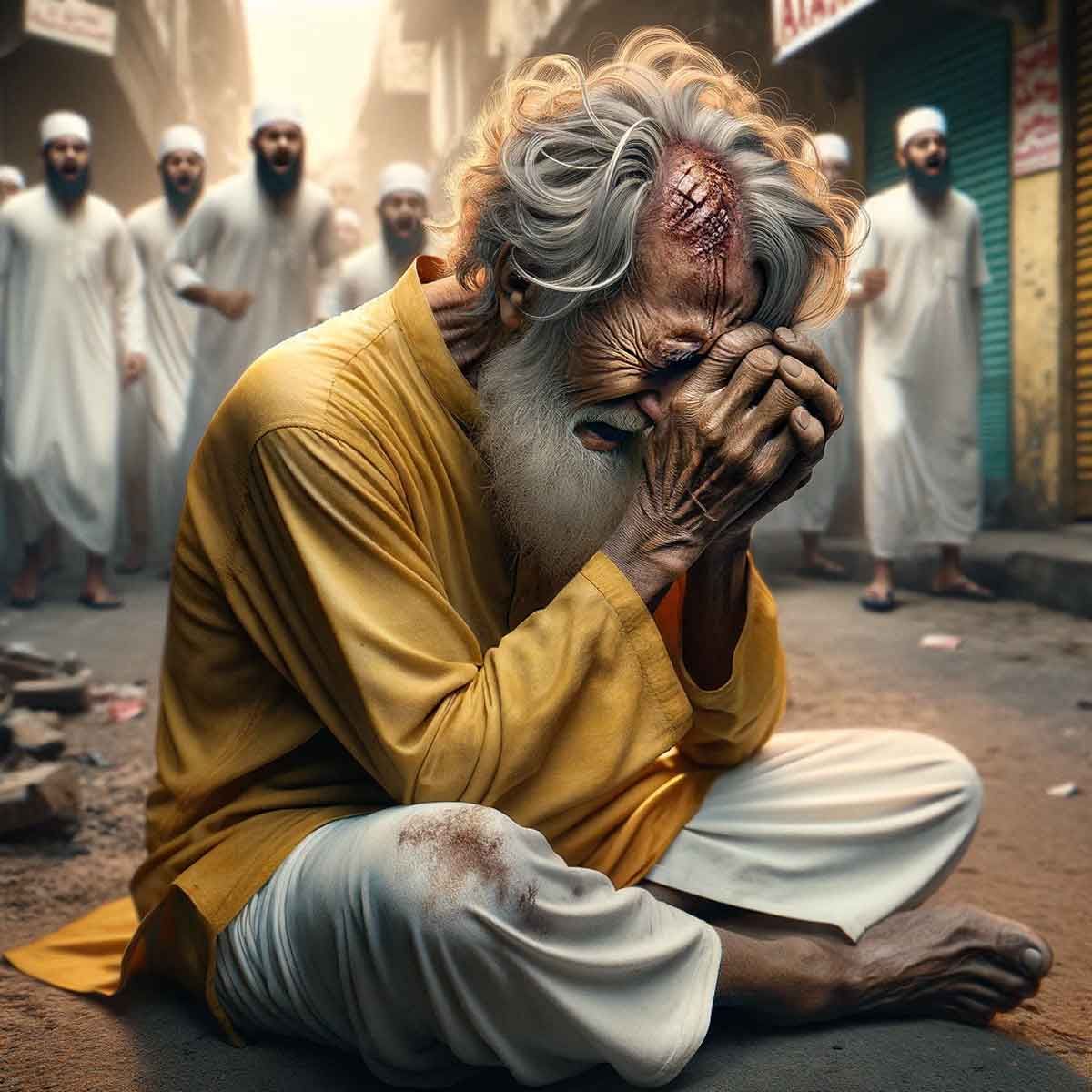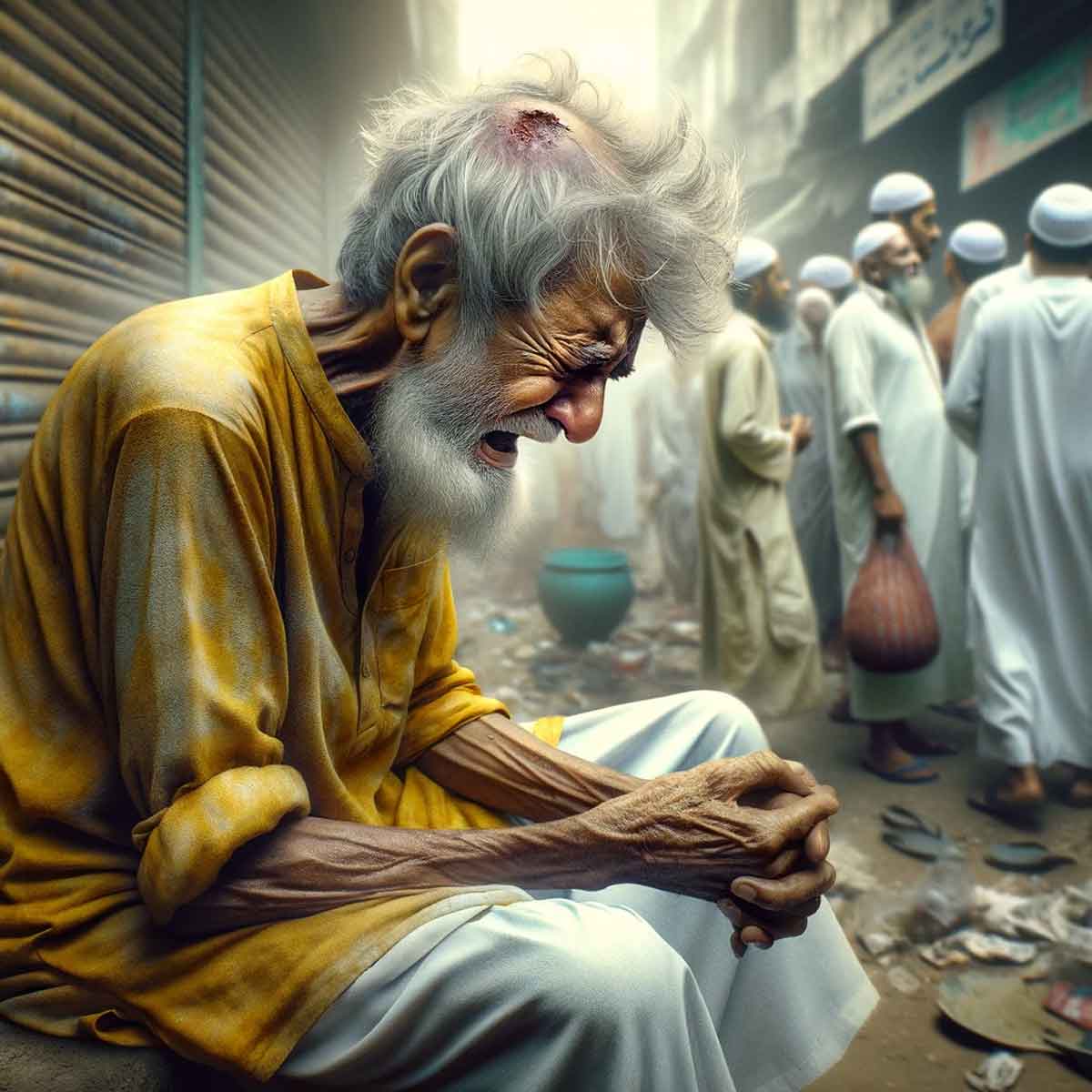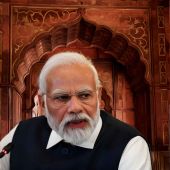"चन्दा दे": In Bangladesh, a Hindu assaulted by Sohail's mob for not paying 'chanda' & keeping his shop open during Ramazan; suffering 18 stitches from the brutal attack, the shopkeeper also faces the theft of his cashbox in this shocking act of violence

In a disturbing event that unfolded on the 15th of March, in the bustling streets of Sylhet city in Bangladesh, a Hindu businessman found himself the target of a violent assault. Rajiv Kumar Dey, the owner of a modest establishment situated in the vicinity of the Sylhet MAG Osmani Medical College Hospital (SOMCH), became the victim of an attack led by a group of Islamists. This attack was not a random act of violence but was precipitated by Dey's decision to keep his shop operational during the daylight hours of the holy month of Ramzan.
|
The orchestrator of this assault was identified as Sohail Hassan, a name that has been tied to the Chhatra League, the student wing of the Awami League government currently led by Sheikh Hasina. The connection of the accused to such a significant political entity adds a layer of complexity to the incident.
From the onset of Ramzan, Hassan, along with his associates, had been imposing upon Dey, demanding a payment of 'chanda' or protection money. Despite the pressure and the looming threat, Dey stood firm in his resolve, refusing to succumb to their demands. This act of defiance, however, led to a confrontation that escalated quickly, resulting in Dey sustaining injuries from a sharp weapon.
The gravity of the situation is underscored by the fact that it took place during a period that is traditionally associated with fasting, prayer, and reflection. The attack not only highlights the challenges faced by minority communities but also raises questions about the safety and freedom of individuals to conduct their business without fear of persecution or violence.
In the face of adversity and with a resolve to continue his livelihood, Rajiv Kumar Dey made adjustments to his business operations out of respect for the ongoing Ramzan, the holy month of fasting observed by Muslims. Understanding the significance of this period, he installed a curtain outside his shop, an act of consideration towards the fasting individuals. His intention was clear: to serve the Hindu patients who required services during the day while visiting the nearby Sylhet MAG Osmani Medical College Hospital (SOMCH).
Furthermore, showcasing an inclusive approach, Dey did not limit his services to the Hindu community alone. In the evenings, he extended his offerings to include iftari, the meal consumed by Muslims at sunset during Ramzan to break their fast. This gesture reflected his desire to cater to all sections of the community, irrespective of religious boundaries.
However, on the afternoon of Friday, 15th March, this symbol of communal harmony was shattered when Sohail Hassan, accompanied by his associate, confronted Dey at his shop. The duo accused him of offending religious sentiments by operating his business during Ramzan. Their words took a more aggressive turn as they declared that a Hindu man had no right to sell iftari to Muslims. Following this verbal assault, they escalated their hostility into physical violence, attacking Dey with a sharp weapon and causing significant damage to his shop.
The aftermath of this unwarranted aggression was dire. Dey was urgently admitted to the Sylhet MAG Osmani Medical College Hospital, the very hospital near which he ran his shop. The severity of his injuries was such that it necessitated 18 stitches on his head, a vivid testament to the brutality of the assault. During this chaos, Sohail Hassan and his accomplices further compounded their cruelty by looting the cashbox from Dey's shop, adding financial insult to physical injury.
Rajiv Kumar Dey was left to reckon with the tangible losses inflicted upon him and his business. Among the immediate repercussions was the theft of his earnings, a blow that added financial strain to his physical injuries. "They broke my cashbox and took money," Dey recounted, a statement that captures both his disbelief and the material impact of the assault. The incident did not just affect him but also extended its harm to his employee, who sustained injuries during the attack. This detail underlines the wider ripple effects of such targeted violence, affecting not only the direct victims but also those associated with them.
In response to the distressing event, a police team, led by Officer-in-charge (OC) Mohammad Moinuddin, promptly arrived at the scene of the crime. Their presence marked an official acknowledgment of the incident, yet, despite this, a police case had not been officially filed in connection with the attack at that time. This lack of immediate formal action raises questions about the processes that follow such incidents and the challenges victims may face in seeking justice.
The unfortunate reality is that this incident is not an isolated event but part of a troubling pattern of persecution faced by the Hindu minority in Bangladesh. Highlighting the systemic nature of this issue, another case surfaced in January of the same year involving a figure from the Chhatra League. Ibrahim Miya, holding the position of convenor at the Kachua Government Bangabandhu Degree College's Chhatra League, was reported to have unlawfully taken possession of land belonging to a Hindu family in Basabaria village. This act of usurpation not only demonstrates the direct victimization of Hindu families but also signifies a broader issue of rights and protections for minority communities in Bangladesh.
 |
 Support Us
Support Us
Satyagraha was born from the heart of our land, with an undying aim to unveil the true essence of Bharat. It seeks to illuminate the hidden tales of our valiant freedom fighters and the rich chronicles that haven't yet sung their complete melody in the mainstream.
While platforms like NDTV and 'The Wire' effortlessly garner funds under the banner of safeguarding democracy, we at Satyagraha walk a different path. Our strength and resonance come from you. In this journey to weave a stronger Bharat, every little contribution amplifies our voice. Let's come together, contribute as you can, and champion the true spirit of our nation.
 |  |  |
| ICICI Bank of Satyaagrah | Razorpay Bank of Satyaagrah | PayPal Bank of Satyaagrah - For International Payments |
If all above doesn't work, then try the LINK below:
Please share the article on other platforms
DISCLAIMER: The author is solely responsible for the views expressed in this article. The author carries the responsibility for citing and/or licensing of images utilized within the text. The website also frequently uses non-commercial images for representational purposes only in line with the article. We are not responsible for the authenticity of such images. If some images have a copyright issue, we request the person/entity to contact us at satyaagrahindia@gmail.com and we will take the necessary actions to resolve the issue.
Related Articles
- Despite immense sacrifice by Hindu community in the liberation war they are subjugated denominations in the country. Bangladesh seized 26 lakh acres of land from Hindus under black law of “Enemy Property Act”
- "Amra ki apraadh koray chiloom | What crime did we commit?": 10-year-old girl crying inconsolably daughter of Rani Roy found unconscious along with a nude dead body of her mother who was r@ped & killed by radicals in Islamic country Bangladesh
- Muslim-owned restaurant's Hotel Manager Manzoor Ahmed despite clear instructions served beef to Hindu customers Supan Pal and his 12 friends celebrating a birthday party, arrested: Bangladesh
- Shocking to normal humans: Desensitized Islamist persecution of Bangladesh’s long-suffering Hindus continues as a young married Hindu woman Nupur Saha gang-raped and murdered to avenge Nupur Sharma’s “blasphemy”, was 6-month pregnant
- "मेरा मुल्क, मेरा देश, मेरा ये वतन": In Tanti Bazar, Bangladesh, Mohammed Hridoy, and Mohammed Jibon attacked a Durga Puja mandap with a petrol bomb, stabbing devotees when stopped, as Bijoy Shah clarified the attack and robbery were separate incidents
- Violence Against Minority Hindus in Bangladesh: The Mistier World Of Silence
- "हाहाकार": Amid ongoing persecution, Hindu youth Sudeb Halder hacked to death, activists say he was murdered for being Hindu; 205 temple attacked, idols vandalized, ISKCON suppressed, blasphemy charges target Hindus under Yunus's interim rule
- "Whispers of death": In October 1990, 26 months before Karseva, Bangladeshi media spread a rumor that the disputed Babri structure had been demolished in India. The aftermath? 3,500 temples razed, and 2,400 Hindu women brutally raped
- Haunting history- 50 years of Operation Searchlight in Dhaka
- "हिन्दू है,हिन्दू": In Bangladesh, Islamists checking a dead man's circumcision, rejoicing when confirmed as Hindu; meanwhile, actor Shanto Khan and his father, creators of a film on Sheikh Mujibur Rahman, were brutally lynched amid escalating violence
- How Jihad a fight against the enemies of Islam is turning into every damn thing that kafir knows from love, thook, land, halal to institution one: Story of conversion from Gujarat – Pooja survived to tell the tale
- "Hate is a fire that consumes its host": Assam Judge Shah Syed Ahadur Rahman faces backlash over controversial tweets like, " Brahmins run, Hindu terrorism and Indian army communal", raising questions about his integrity amidst expected promotion
- Sports teacher Parvez Alam arrested of raping an 8th standard 13-year-old boy at a private school in Jamshedpur: matter came to light on when the minor attempted suicide
- "Sab ganda hai par dhandha hai yeh": Gaana, Hungama, Spotify, Amazon Music, Apple Music, YouTube, and more such streaming giants host inciting Islamist songs calling for beheading over ‘blasphemy’ against Prophet Muhammad
- A tragic Instagram love triangle turns deadly in Delhi: Arman Khan, Faisal Khan, and Mohammed Sameer are arrested for the brutal murder of Mahir, who was stabbed more than 50 times in Bhagirathi Vihar. DCP Joy Tirkey spearheads the intense investigation













